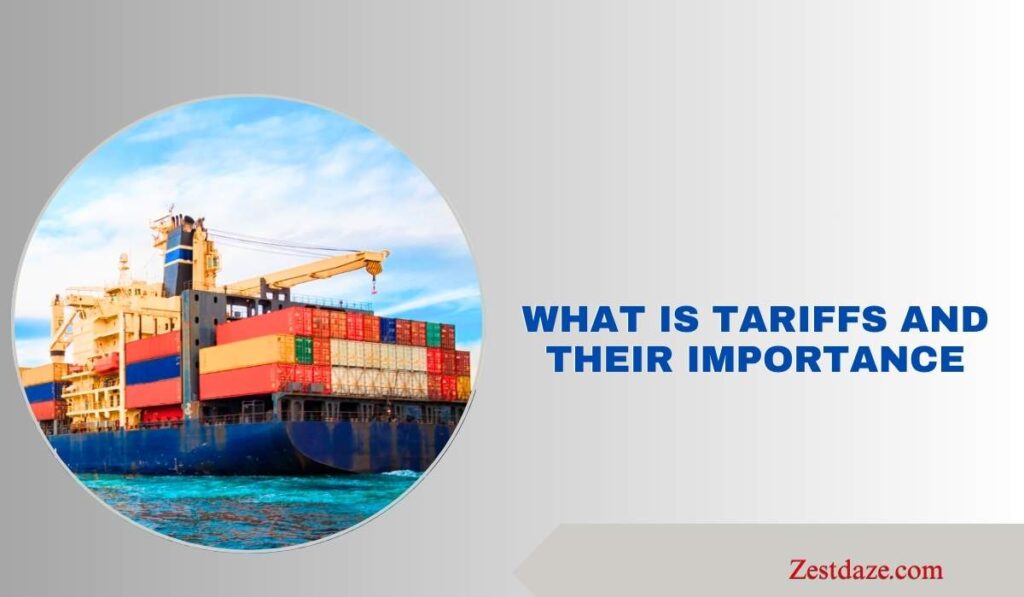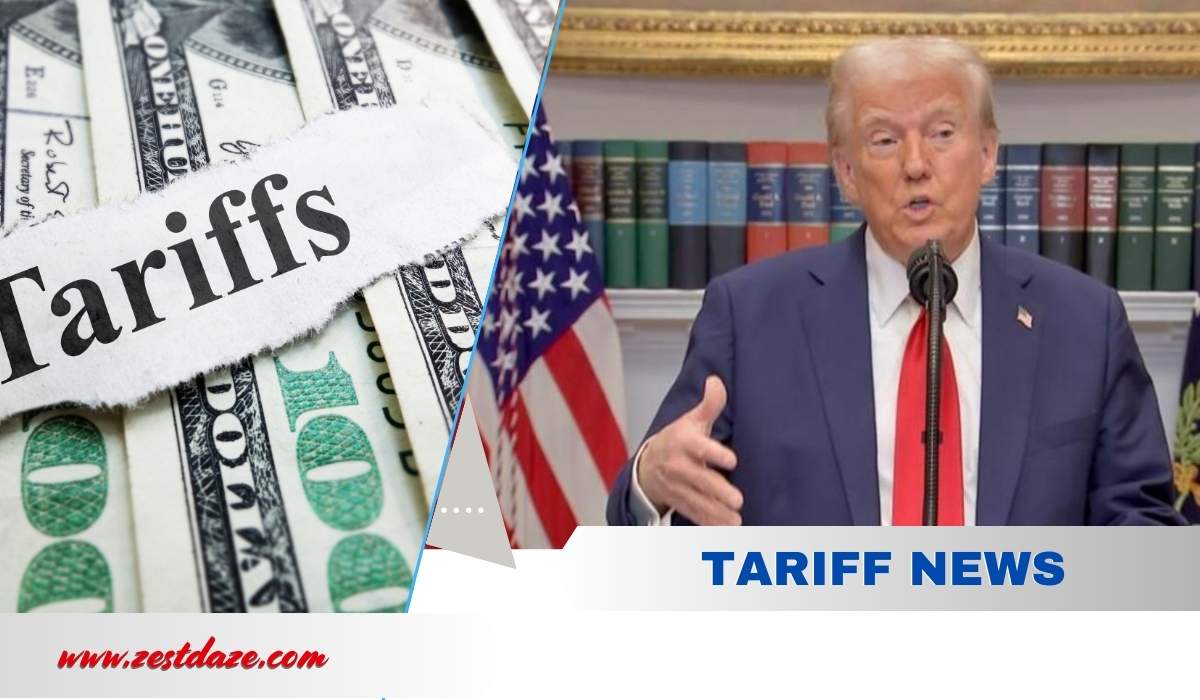The recent tariff news: U.S President Donald Trump has announced some new tariffs on goods from several countries, increasing tensions in global trade. The global trading industry is very tense because these tariffs will impact the overall trade and will start on August 1, 2025. According to Donald Trump, this deadline will not be extended or delayed. He is very stubborn about his decision. It is important to understand what the tariffs are and how many countries will have to face the consequences of these new trade tariffs.
Tariffs and Their Importance

Tariffs are the taxes that a country charges other countries on the goods that they import. There is a parallel relationship between tariffs and the cost of imported products. As the tariffs increase, the cost of imported products also increases. This will highly affect the buyers of those imported products, and the business will become expensive.
These steps are take by the government to protect their own market. There is a simple factor, if the products from other countries is imported in our country, people will prefer them, over their own market and products. So, in order to protect their own industries from foreingn competition or to encourage other countries to change their trade policies, government uses tariffs.
- You May Also Like- Hera Pheri 3 Drama: Paresh Rawal Out, But Akshay Kumar Keeps the Faith Alive
New Tariffs Imposed by US President: All the Details
U.S President Trump has announced that all tariffs will take place from August 1, 2025. He has released a statement saying that official notices have been sent to many countries and further will be sending to in total of 22 countries. Trump has clearly said that the countries have to agree to all the terms and conditions with the tariff rate.
Here are the details of some of the countries on which this tariff has been imposed, along with the tariff rate and other information:
| Country | Tariff Rate | Details |
| Libya | 30% | All products |
| Iraq | 30% | All products |
| Sri Lanka | 30% | All products |
| Algeria | 30% | All products |
| Moldova | 25% | All products |
| Brunei | 25% | All products |
| Brazil | 50% | Especially copper exports |
| Philippines | 20% | All products |
| Japan | 25% | Autos, auto parts, electronics |
| South Korea | 25% | Vehicles, machinery, electronics |
| Malaysia | 25% | Electronics, electrical products |
| Kazakhstan | 25% | Oil, uranium, ferroalloys, silver |
| Myanmar | 25% | All products |
| Laos | 25% | All products |
| South Africa | 25%–30% | Diamonds, vehicles, and auto parts |
Why are These Countries Targeted?
This tariff news has impacted many countries. The Trump administration says these tariffs are meant to deal with unfair trade practices and lower the U. S. trade deficit, which is when the country buys more goods than it sells. Some of the countries being targeted have big trade surpluses with the U. S., but others have smaller trade amounts and are still included in the list of countries facing tariffs.
For example, the U.S. trade deficit with Iraq was about $5.9 billion last year, and with the Philippines, it was around $4 9 billion. Brazil, which is a major supplier of copper, is being hit with the highest tariff rate, which could influence global copper prices.
Reactions of the Country
Since the U.S is targeting many countries, they are trying to negotiate with the U.S. to give some compensation for the taxes, or the U.S can avoid these taxes. After the announcement of this tariff news, some of the countries, like Bangladesh, have offered a way to ease the ongoing trade tension that they will increase imports from the U.S. in their country.
Trade discussions are happening with many countries. President Trump said agreements have been reached with the United Kingdom and China, and talks with India are nearly finished. But the talks with the European Union are not going well, which has led to worries that there might be future taxes on goods from Europe.
What is the Impact on Global Markets and the Economy
The news about these tariffs has already caused changes in the global market. For example, the 50% tax on Brazilian copper has led to ups and downs in copper prices around the world. The U. S. dollar has also dropped a little in value compared to other main currencies after this news came out.
Experts say these tariffs might slow down the growth of the global economy, especially in areas like oil. Higher tariffs can make it more expensive for companies, lower the amount of trade, and in the end, reduce the demand for goods like oil.
Amrita Sen, who leads Energy Aspects Research, said, “The increase in U.S. tariffs is likely to cause slower growth in global oil demand during the third and fourth quarters of this year.”
Concerns and Criticism
Many experts and international leaders are concerned that these tariffs might harm the global economy. They believe that higher tariffs can start trade wars, where countries keep increasing taxes on each other’s products. This can slow down economic growth and make things more expensive for people around the world.
Some people also point out that tariffs can hurt American companies that use global supply chains. These companies might end up with more expensive products and lose their edge in the market.
What’s Next?
The U. S. government has set a clear deadline of August 1, 2025, for these tariffs to start. Countries have until then to talk with the U. S. and try to make deals that might lower or take away the tariffs.
If no agreements are reached by that date, the tariffs will be fully enforced, which could cause more trade disputes and economic problems.
Final Thoughts
This tariff news announced by President Trump is a major development in the trade disagreements between the U. S. and several other nations. As the August 1 deadline gets closer, the next few weeks will be very important for international trade relationships.
Countries are trying their best to talk with the U.S. to stop these tariffs, and businesses and people around the world are paying close attention to see how these changes will impact prices, markets, and the economy.
The way global trade works is changing, and what happens in the coming weeks could have a big effect on international business for a long time.

